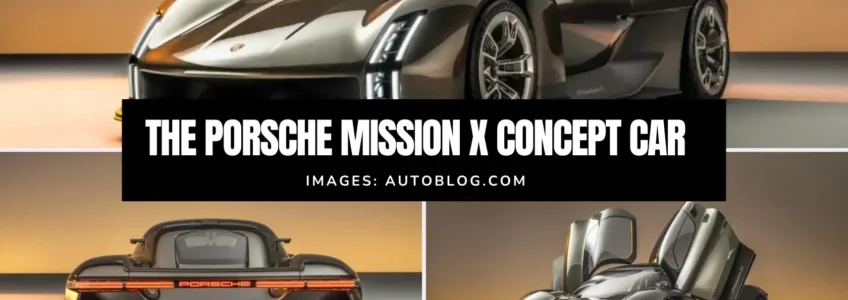The advancement of infrastructure projects in the UK is always a sign of growth and development. A prime example is the progressing plans of Anglian Water’s ambitious 68km pipeline, set to connect Bury St Edmunds in Suffolk to Colchester in Essex. This project has recently made significant strides, securing the nod of approval from Babergh & Mid Suffolk District Councils.
In the sophisticated world of engineering, particularly in the realm of electric motors that are the lifeline of various industries, innovation and efficiency are paramount. Selective electroplating has remarkably ascended as an unsung hero in this domain. Below, we unveil the manifold benefits and intrinsic values that this technique harbours, casting a spotlight on its indispensability.
The aeronautics industry is soaring towards unparalleled heights, constantly evolving with innovations that not only break barriers but also reimagine the very essence of flight. One such game-changing development comes from Bristol-based Aeralis, a company that has not just launched a new aircraft, but rather a revolutionary modular jet concept that’s set to redefine the aviation landscape.
With the increasing need for sustainable energy sources, innovation in battery technology becomes paramount. One such advancement emerging from the labs of the University of Cincinnati is the membrane-free lithium-ion battery. This technological marvel could become a game-changer, particularly for our grid systems, which thirst for efficient, cost-effective energy storage.
Waterjet cutting has revolutionised the manufacturing industry, offering a myriad of advantages over traditional cutting methods. Among them, hydro-abrasive waterjet cutting stands out as a superior choice for a range of materials, including metal, stone, and glass. In this article, we take a look at the intricacies of this advanced technique, shedding light on its principles, advantages, applications, and comparisons with other cutting methods.
The dawn of a new era in aviation is on the horizon. One that promises the thrills of supersonic flight, but without those deafening sonic booms. How, you ask? Enter the X-59 QueSST supersonic jet, an experimental marvel from NASA.
A clear, sunny day might seem like perfect flying conditions, but as temperatures continue to rise globally, the aviation industry is being forced to confront a new challenge: heatwaves. Soaring temperatures might feel nice on a beach, but they can present complex issues for aircraft. Let’s take a closer look at why this happens and some potential solutions to counter the effects of heatwaves.
Porsche’s recent unveiling of the Mission X concept hypercar has sent ripples throughout the automotive world. This striking electric supercar concept serves as a testament to Porsche’s vision for the future. At first glance, it’s a jaw-dropping spectacle; delve a little deeper, and the details are simply out of this world. Let’s dive in!
The Cheetah: More Than Just a Mascot
Upon closer inspection, a sprinting cheetah emblem becomes apparent near the rear wheels. Porsche’s decision to incorporate this swift, lightweight animal serves as an emblematic nod to the design ethos of this incredible hypercar. It’s a continuation of an endearing Porsche design tradition – infusing models with animal symbols. Remember the Vision 357’s dinosaur, a homage to the past, and the wild boar representing the race-ready Mission R?

Motorsports Roots Run Deep
In every curve and corner, there’s a trace of motorsports. The Mission X’s design borrows heavily from iconic Porsche race cars, with cleverly incorporated tributes like the vertical headlights reminiscent of prototype hypercars. The “Daytona” window harks back to the classic Porsche 917. Additionally, the inclusion of a passenger-side screen and clock, which can even be detached, screams ‘rally’ to any enthusiast.
Unconventional Braking at the Driver’s Fingertips
The steering wheel’s paddles have left many guessing. While most associated these with shifting, the real functionality was a delightful surprise. While the left paddle adjusts regenerative braking, the right one fine-tunes the brake balance. An intriguing and innovative feature that offers the driver unparalleled control.
Also Read: The Evolution and Prospects of the Automotive Industry
Track Ready, Yet Luxuriously Crafted Hypercar
Though the Mission X isn’t a full-fledged race car, it’s undeniably track-ready. Its luxurious metallic grey finish subtly contrasts its race ambitions. Thoughtful design elements like infotainment buttons crafted for ease of use, even with racing gloves on, and the bespoke seats – essentially modular pads that can be customised – reiterate Porsche’s attention to detail.
One might question the mid-engine design of an electric car. However, Porsche’s rationale is simple. The car’s battery pack sits snugly behind the seats, somewhat shaping its profile. Plus, let’s admit it, the mid-engine silhouette is a real classic.
What Lies Ahead For Porsche’s Hypercar Future?
While Porsche CEO, Oliver Blume, has hinted at the potential of a new hypercar, it won’t be before the decade’s end. Challenges with current battery technology remain a hurdle. However, the Mission X, not intended for sale currently, undoubtedly paints a tantalising picture of what the future might hold.
Adorning a unique Rocket Metallic with satin carbon fibre touches, the Mission X mirrors the dimensions of past legends like the Carrera GT and 918 Spyder. A blend of historic and contemporary design cues can be found, from the iconic illuminated DRLs to the futuristic lattice-supported LED taillights.
The car’s interior beckons speed enthusiasts, with its plush Andalusia Brown and Kalahari Gray upholstery, and the state-of-the-art “e-core” battery setup promises mid-engined dynamics.

The Porsche Mission X: Potential Record Breaker
Though specifics regarding drivetrain and output were conspicuously absent at the reveal, one thing’s for sure – if it goes into production, Porsche aims for the Mission X to be a Nürburgring record-breaker with unrivalled charging capabilities. And while its commercial future remains undecided, we’re certain that this hypercar concept has already garnered a list of eager, deep-pocketed enthusiasts.
If the street-legal coupe goes to production, it would aim to “be the fastest road-legal vehicle around the Nürburgring Nordschleife; have a power-to-weight ratio of roughly one hp per 2.2 lbs.; achieve downforce values that are well in excess of those delivered by the current 911 GT3 RS; offer significantly improved charging performance with its 900-volt system architecture and charge roughly twice as quickly as the current Porsche frontrunner, the Taycan Turbo S.”
In the ever-evolving landscape of automotive engineering, Porsche’s Mission X hypercar concept stands as a beacon of innovation, performance, and design. A marvel that has undoubtedly set the stage for an electrifying future.
The automotive industry stands on the cusp of revolutionary change, spurred by technological advancements, changing consumer preferences, and environmental concerns. Through this lens, we aim to provide a profound exploration of where the automotive industry is headed and the multifaceted trends propelling it forward.











Recent Comments